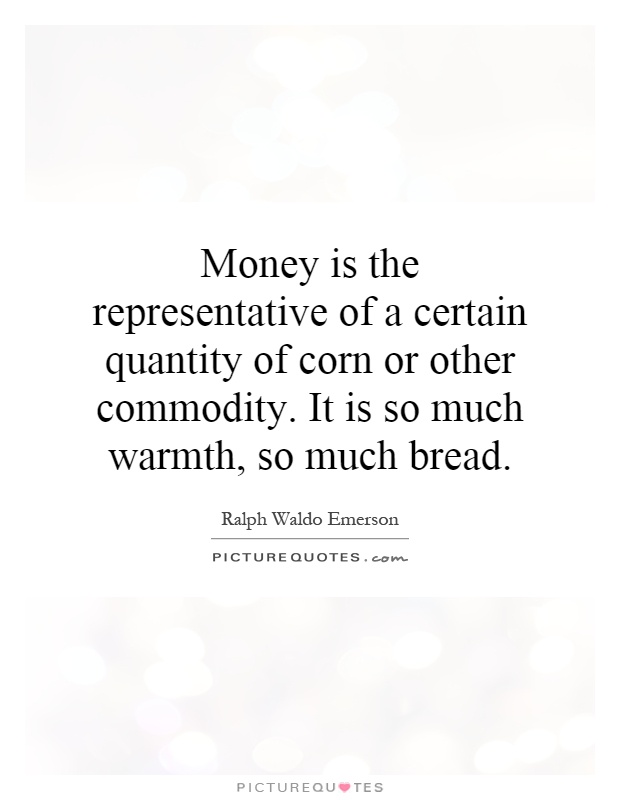Money is the representative of a certain quantity of corn or other commodity. It is so much warmth, so much bread

Money is the representative of a certain quantity of corn or other commodity. It is so much warmth, so much bread
Ralph Waldo Emerson, a renowned American essayist, poet, and philosopher, was known for his transcendentalist beliefs and his unique perspective on various aspects of life. One of his famous quotes, “Money is the representative of a certain quantity of corn or other commodity. It is so much warmth, so much bread,” reflects his views on the nature of money and its true value in society.Emerson believed that money, in its essence, is simply a medium of exchange that represents the value of goods and services. In his view, money is not an end in itself but rather a means to an end – a tool that enables individuals to acquire the necessities of life, such as food, shelter, and clothing. By equating money to “so much warmth, so much bread,” Emerson emphasizes the practical and utilitarian nature of money, highlighting its role in providing comfort and sustenance to individuals.
Furthermore, Emerson’s quote suggests that money should be viewed in relation to the tangible goods and resources it can purchase, rather than as an abstract concept or a measure of one’s worth. By emphasizing the connection between money and commodities like corn or bread, Emerson underscores the idea that money has value only insofar as it can be exchanged for essential goods that sustain life.
Emerson’s perspective on money can be seen as a critique of the materialistic and consumerist tendencies of society, where the pursuit of wealth and possessions often takes precedence over more meaningful and fulfilling pursuits. By reminding us of the fundamental purpose of money – to provide for our basic needs – Emerson encourages us to reevaluate our relationship with money and to consider its true value in the context of our overall well-being and happiness.












 Friendship Quotes
Friendship Quotes Love Quotes
Love Quotes Life Quotes
Life Quotes Funny Quotes
Funny Quotes Motivational Quotes
Motivational Quotes Inspirational Quotes
Inspirational Quotes